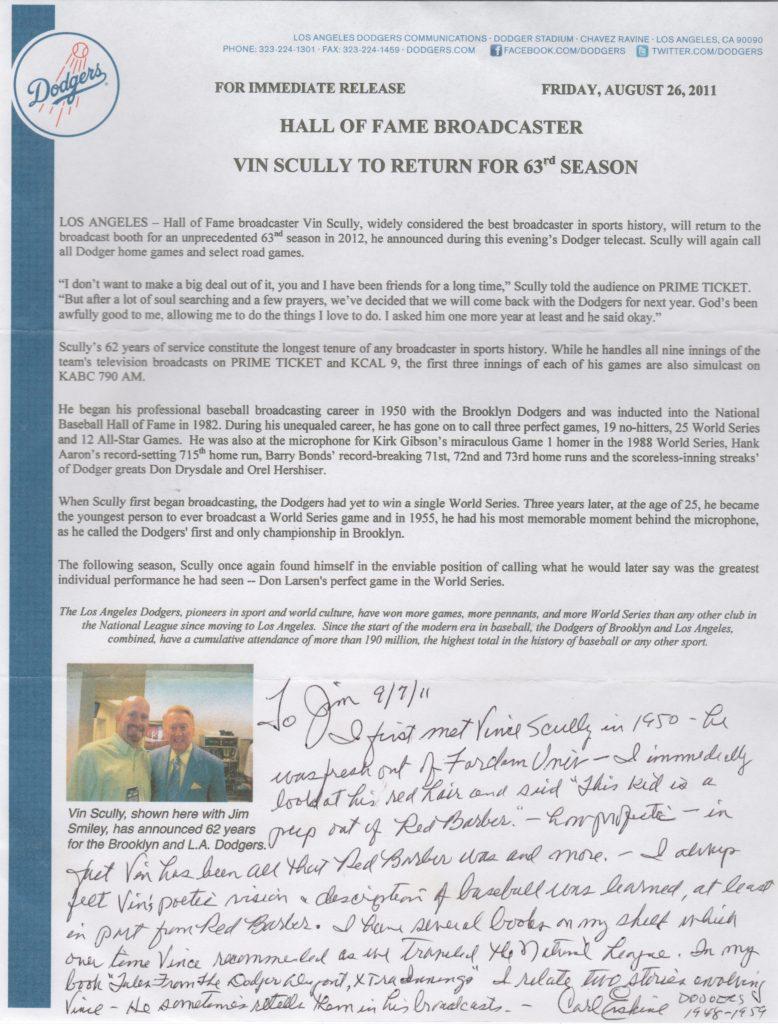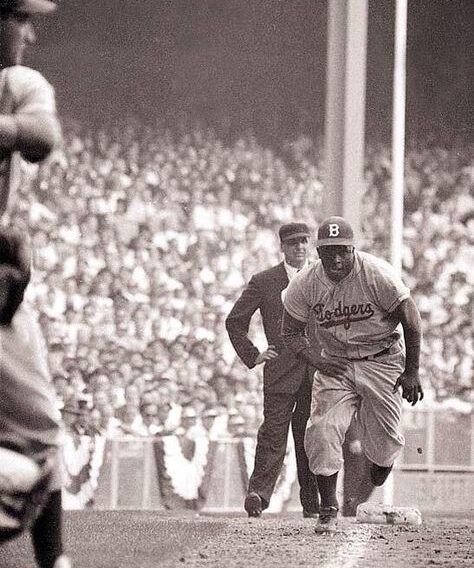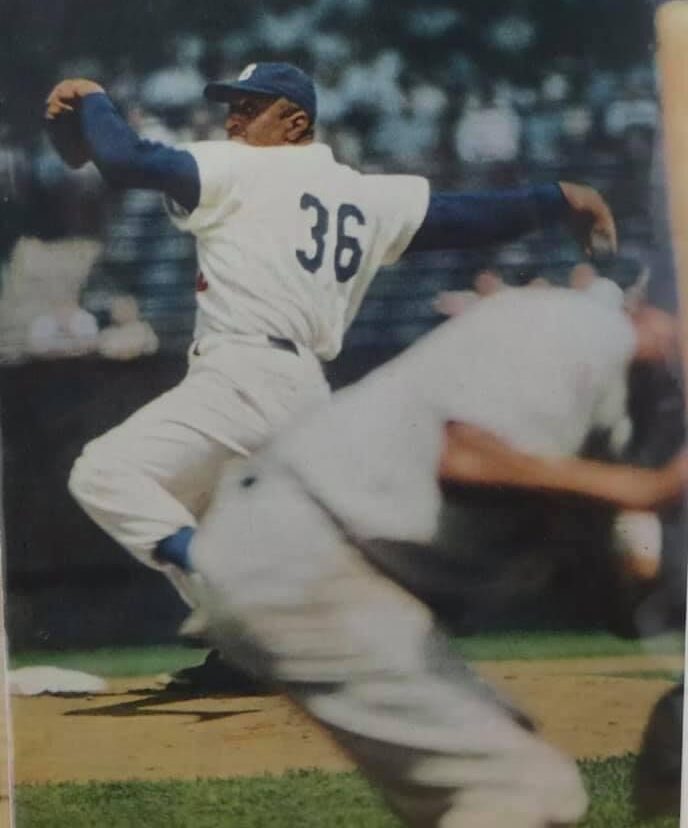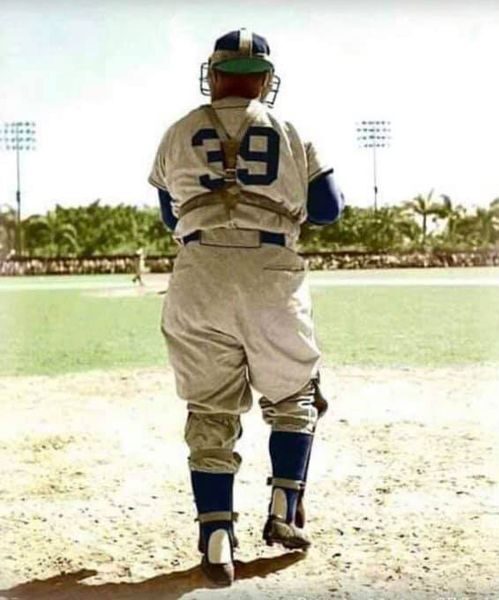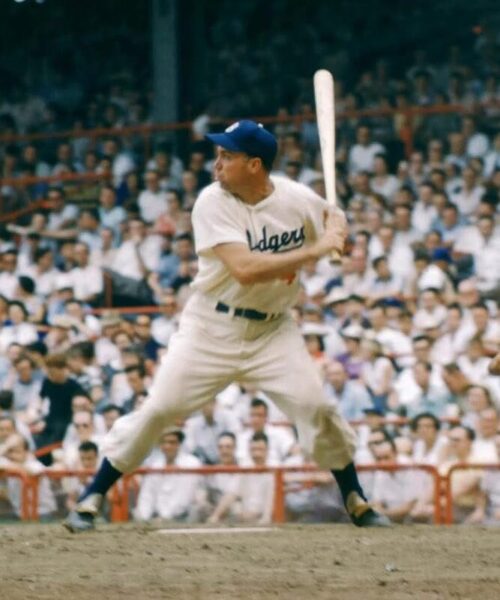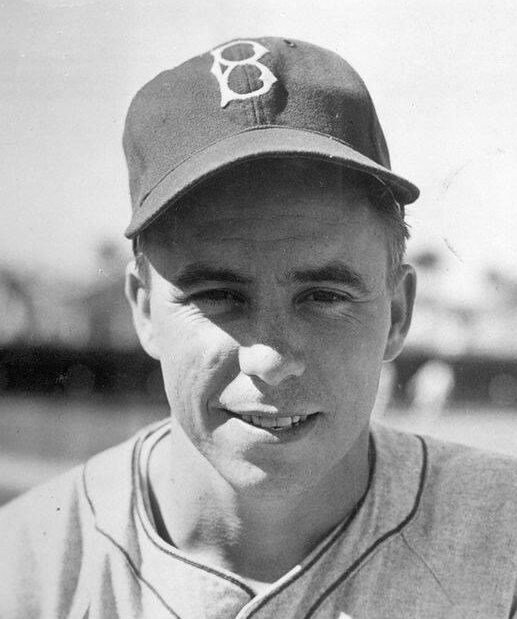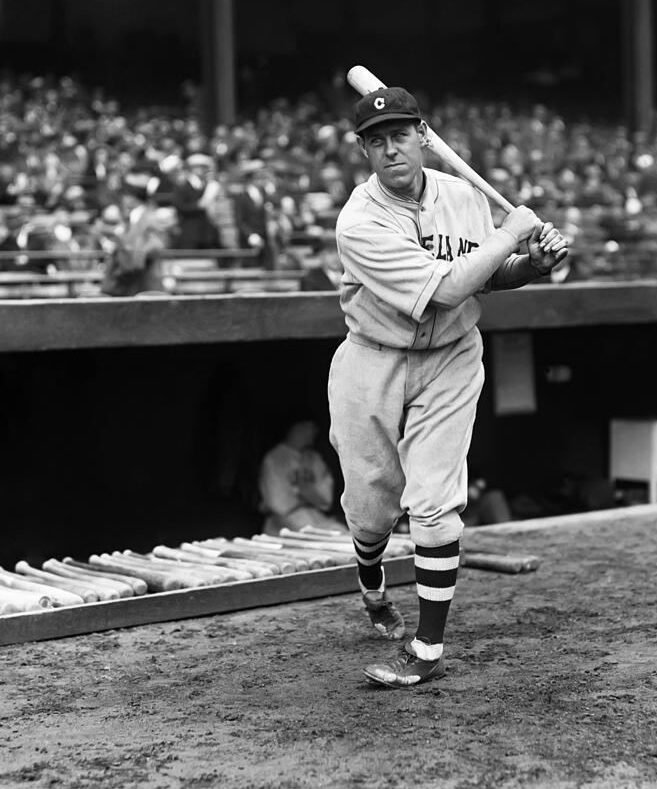Carl Erskine
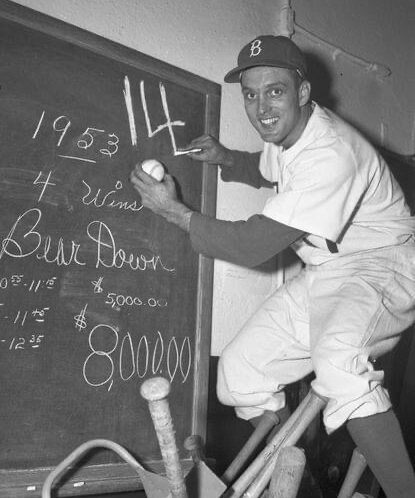
| Birthdate | 12/13/1926 |
| Death Date | |
| Debut Year | 1948 |
| Year of Induction | |
| Teams | Dodgers |
| Position | Pitcher |
From 1949-56 Carl Erskine threw 2 no hitters, pitched in 5 World Series and set a post-season record by striking out 14 Yankees in 1953.
Leave a comment
In the collection:
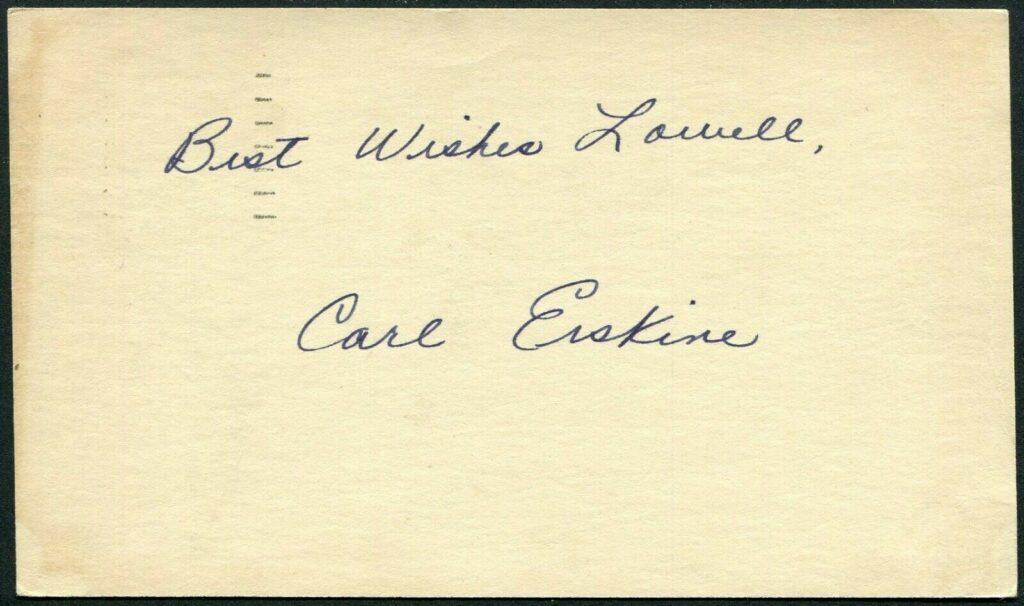
Carl Erskine broke in with the Brooklyn Dodgers in 1948
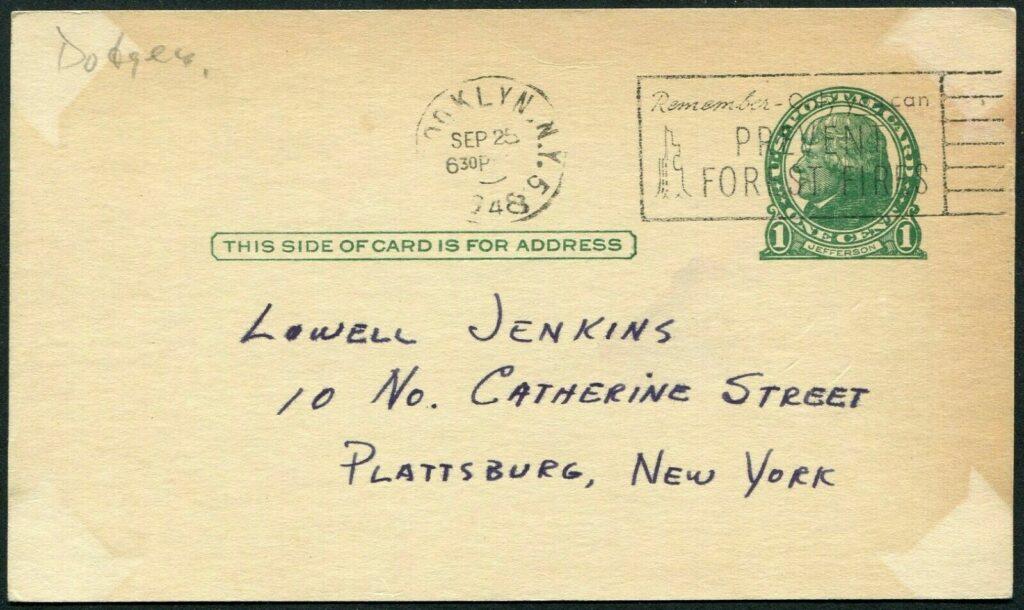
The postmark shows that 21-year old Carl Erskine mailed this in his rookie season
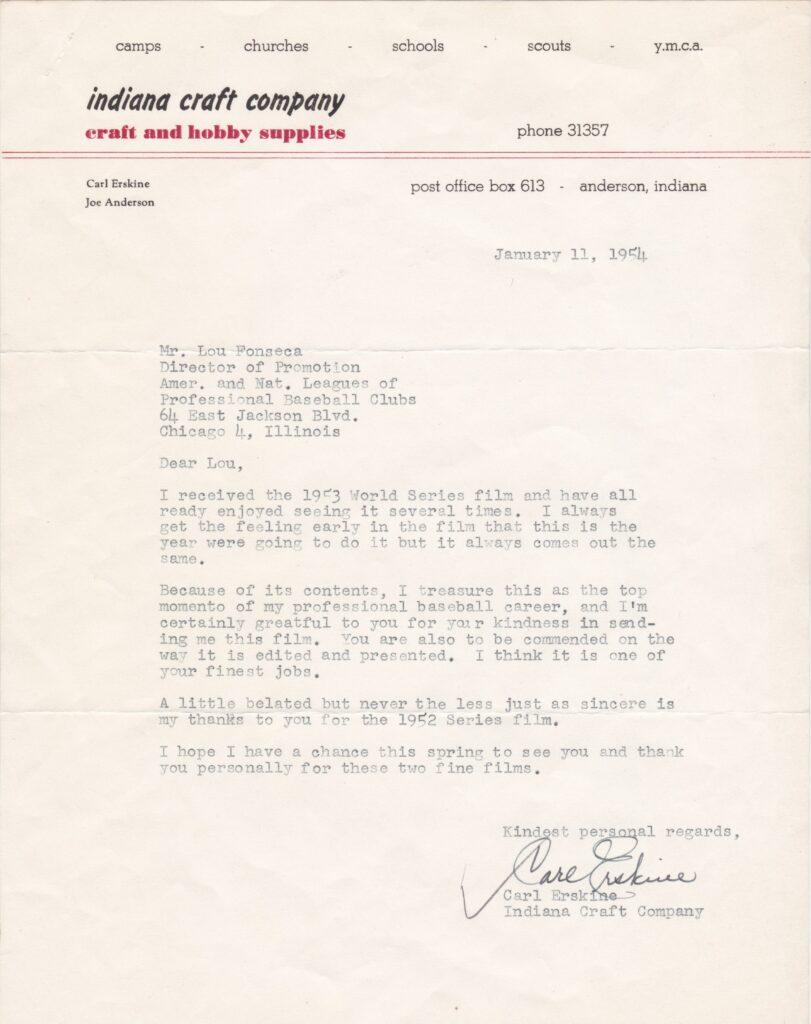
In 1953 Carl Erskine set the World Series record for strikeouts in a game - here are his thoughts three months later
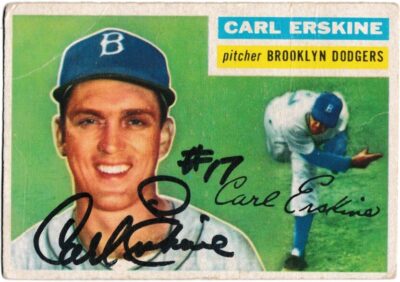
Erskine's 1955 Dodgers gave Brooklyn its only World Series title
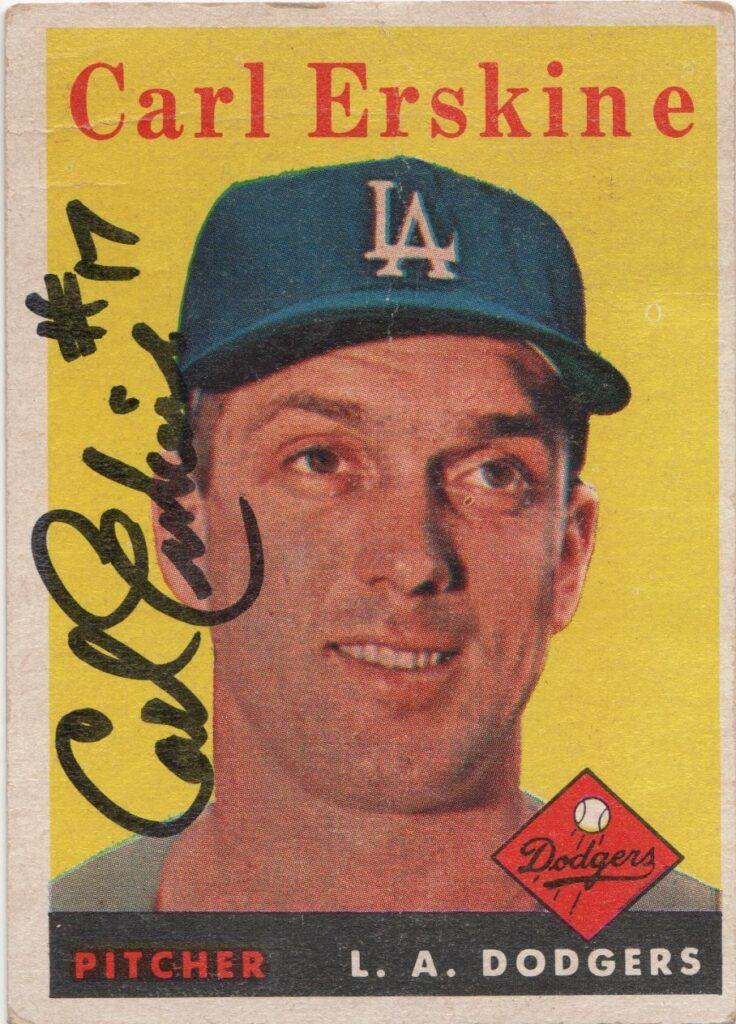
After a decade in Brooklyn, Carl Erskine pitched two seasons in Los Angeles
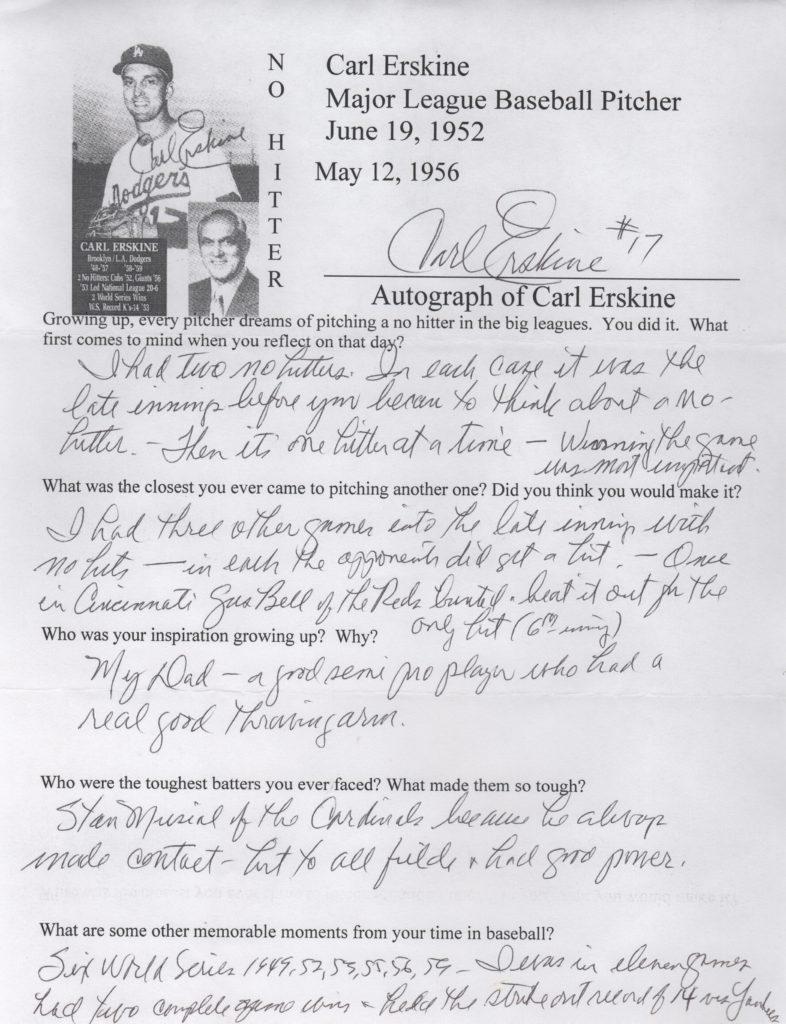
Questionnaire filled out and signed by Carl Erskine about his two no-hitters and his World Series gem
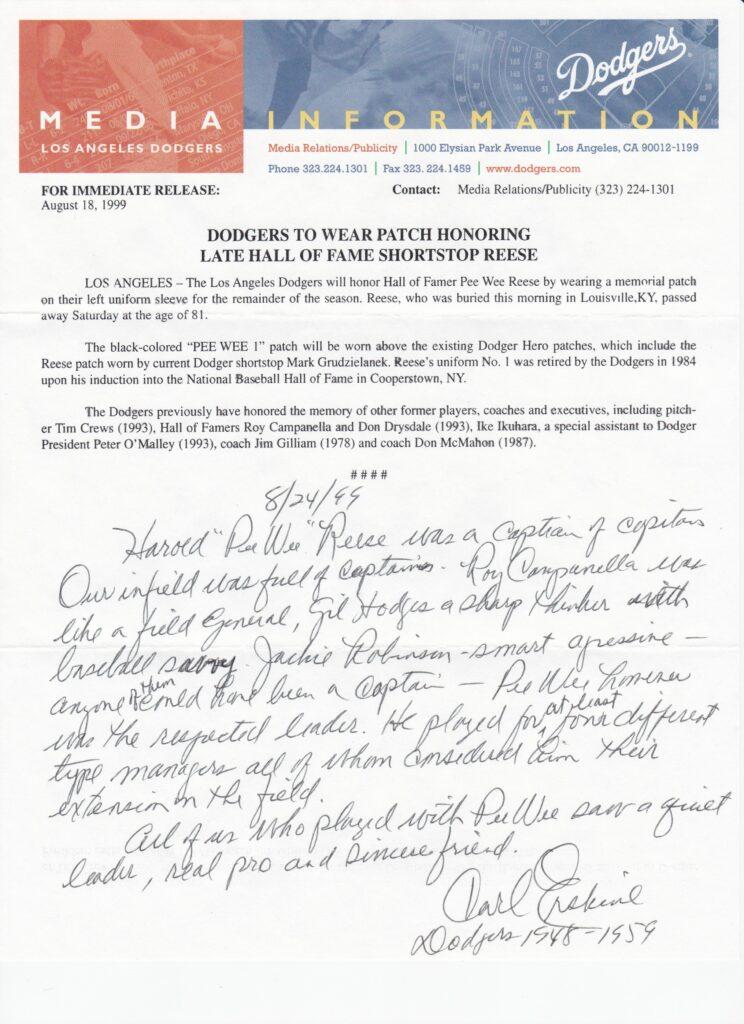
Carl Erskine writes about Pee Wee Reese, his Brooklyn teammate of 11 years
